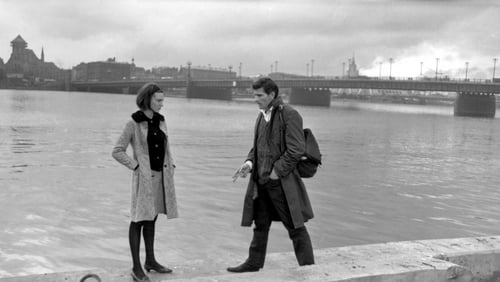
Co-Writer

In one of the prestigious restaurants during banquet speech a large company's director Palmgren is killed in front of dozen guests . Case is lead by Criminal Investigation Officer Pierre Monson with his assistants. Suspect can be easily intercepted if only miserably lazy police officers Kvant and Kristiansson instead of catching criminal would not argue with father of little 3 years old boy who yelled: "Police, police, mashed potatoes" when they ate hot dogs. Help comes from capital in form of the famous Commissioner Martin Beck, who discovers that murdered industrialist was involved in illegal activities and had many enemies. The case is linked as well with government's "higher ends".

Human attempts to understand why when acting they are all going through the heart, but in real life are playing a role.

The colourful musical comedy Maritime Climates could have been a triumph of smart political satire – if people in positions of power hadn’t got worried by the rushes they saw, which lead them to terminate the production. In 1992, Rolands Kalniņš made this edit of the remaining material – an elegy to lost hopes and illusions.

Miervaldis Tralmaks
Cezars Kalnins, portrayed by "Latvian Harrison Ford” Uldis Pucitis, installs telephones by day and composes pop songs by night. The puritan Soviet censorship deems Cezars’s lyrics "unsuitable and frivolous” and "unfit for the Soviet youth”. In fact, it can be argued that this assessment matches the opinion of the Soviet cinema authorities in regard to this film as a whole, since "Four White Shirts” was immediately banned and released in cinemas only in 1986. The creative boldness and stubbornness, evident in both Cezars’s bitingly ironic verses and the film’s unconventional narrative structure and fresh, new-wave-inspired mode of expression, turned out to be equally problematic for the hero and for the film itself, as well as for its director whose representation of the actual mechanisms of Soviet censorship ended up too realistic for his own good.



